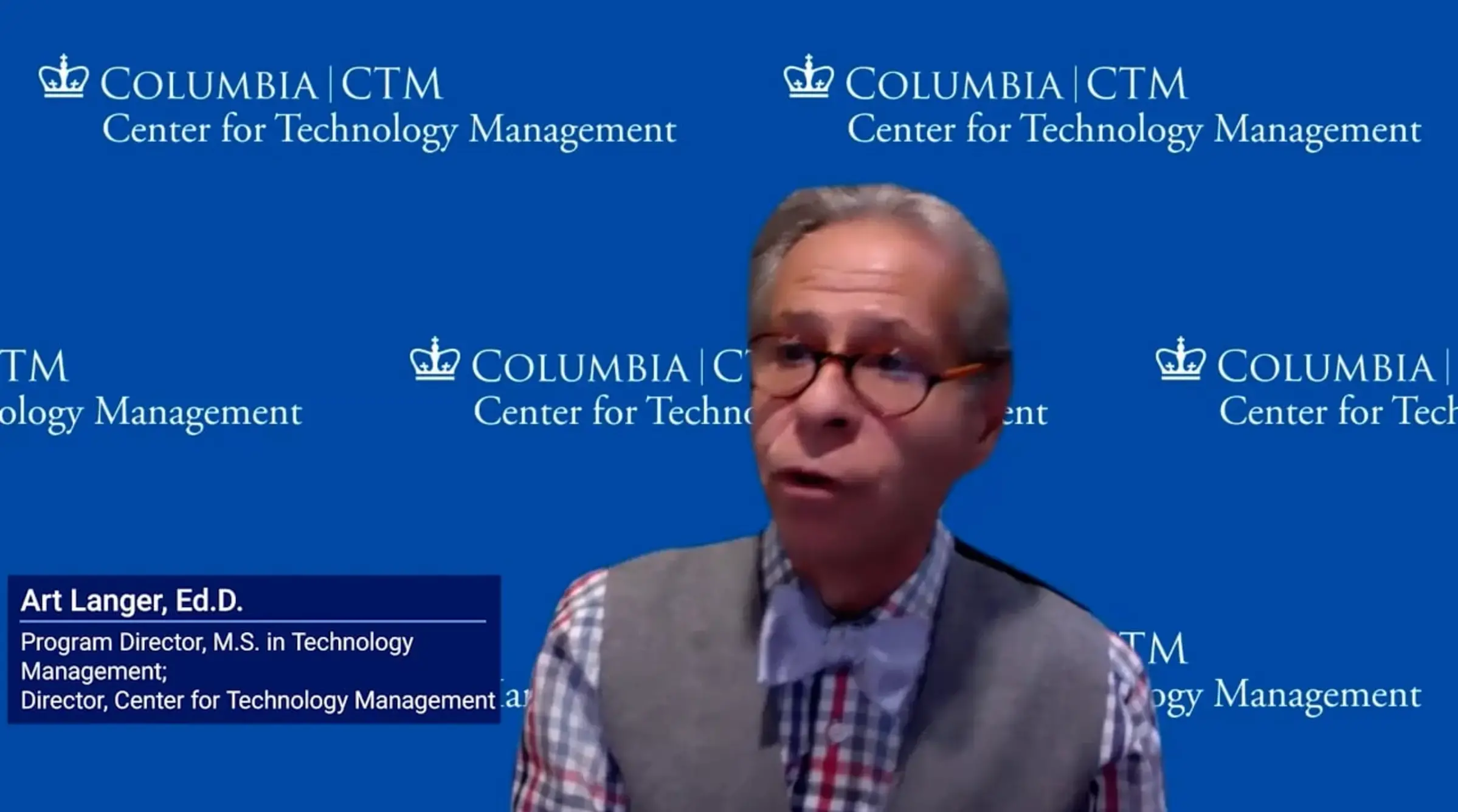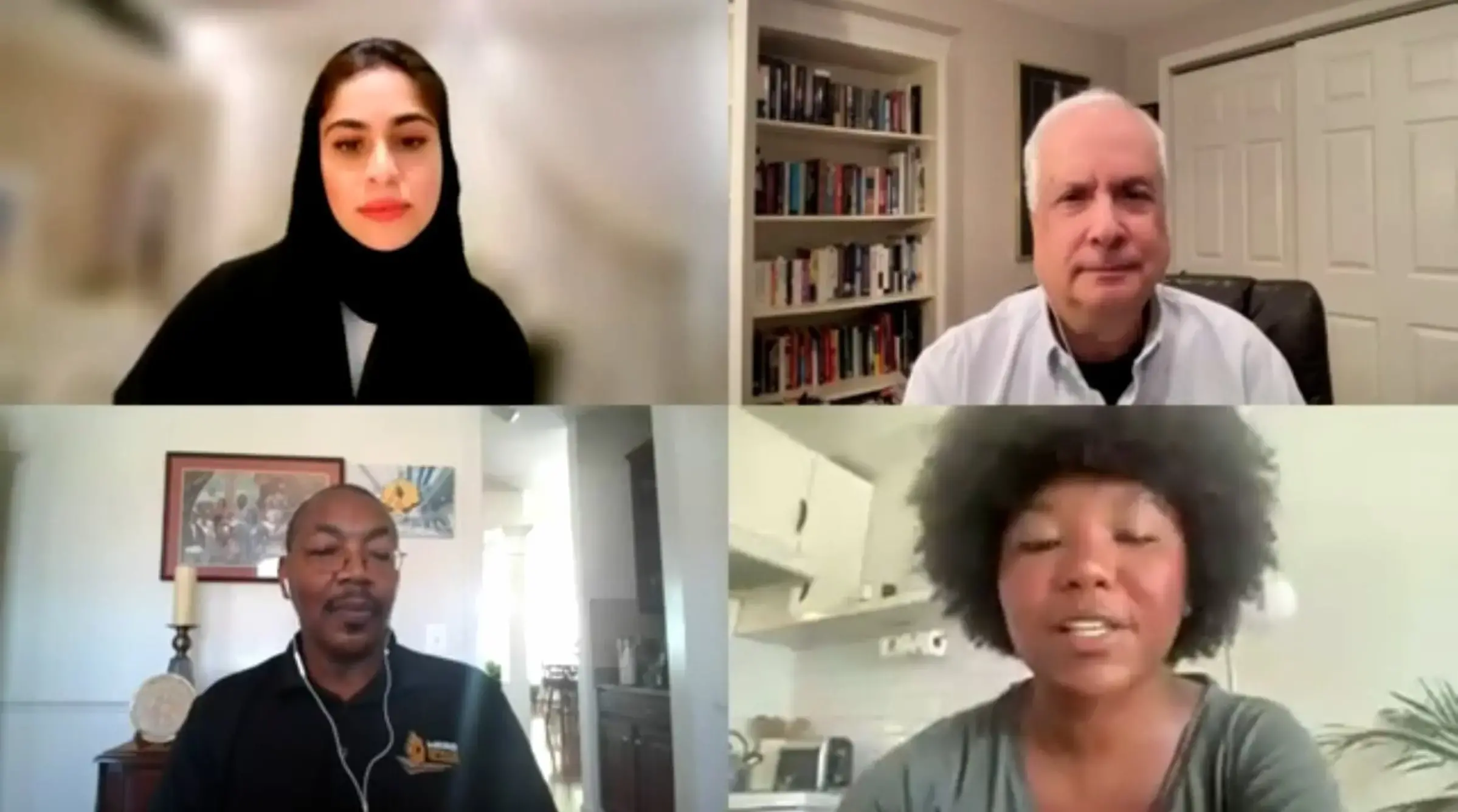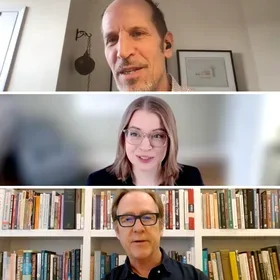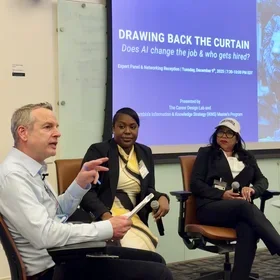Is your organization agile? Over the last two years, the ability for companies to realize goals amid rapidly changing circumstances has been crucial in being able to successfully navigate the pandemic. How are leaders at top organizations defining agility? How can they support their employees to adapt to shifting roles and responsibilities and, conversely, how can they fulfill employees’ changing expectations about work? How are they leveraging diversity and empowering teams and departments to perform with agility, and what do these scenarios look like across a diverse array of industries?
Throughout the academic year, Columbia University’s School of Professional Studies is hosting the series, Agility 2.0: Digital Technology, Data, People, and Relationships. Four master’s programs–Technology Management, Information and Knowledge Strategy, Human Capital Management, and Negotiation and Conflict Resolution–convene experts from industry, academia, and the public sector to address how organizations can leverage their expertise alongside evolving tools and unforeseen events to successfully navigate our increasingly complex world.
Don't miss the last two events in the series: Agility in the Moment on May 2, and the series wrap-up in June.
The M.S. in Technology Management program kicked off the series in November with “Digital Transformation and the Future of Work.” Professor of Professional Practice Arthur Langer led the session, and challenged participants to rethink how companies might use techniques of agility in their hiring practices. How can digital technologies help companies attract and retain skilled talent, rethink different types of employment relationships, and create diverse workplaces? Dr. Langer introduced the idea of building digital platforms to source qualified and underutilized workers.
In January, the Information and Knowledge Strategy (IKNS) led the event “Learning Agility: Missions for Climate, Childhood, and Social Change.” The panel discussed what was required to design global, complex missions. Can a successful initiative stem from an individual trailblazer? Does an entire organization need to move together for an agile initiative to succeed?
Representing a wide range of experiences and perspectives, IKNS alumnae Aseel Buhaji and Tameka Vasquez shared their expertise on how to use knowledge strategy to achieve better outcomes for early childhood development in Abu Dhabi, and to design climate-friendly urban tech solutions for New York City. Faculty member Greg Robinson discussed how he approached leading the launch of NASA’s James Webb Space Telescope.
On March 31, the Human Capital Management program continued the series with the event, “Is an Agile Culture Even Possible?” Moderated by Program Director Dr. Steve Safier, the panel included Audible’s Chief People Officer Anne Erni, PepsiCo’s SVP and Global Talent Acquisition Blair Bennett, The Home Depot’s CHRO Tim Hourigan, and Peloton’s SVP and Global Head of Diversity, Equity, and Inclusion Dr. Christal Morris. The group discussed how organizations need to build and support an agile culture on multiple levels, and simultaneously, from leadership, to management, to the individual employee.
Don't miss the final two events in the series.
"Agility in the Moment," on May 6, features faculty and guest speakers from the Negotiation and Conflict Resolution program. The panel, featuring Dr. Beth Fisher-Yoshida, Mark Whitlock, Dr. Dianne Williams, and Dr. Ramone Segree, will discuss necessary considerations for implementing agility. Agility in the conflict resolution field is crucial when quick decisions can have large-scale consequences–whether it’s a shift in workplace culture, the change of course on a program, or when global events impact carefully laid out strategies. Leaders representing different sectors within the conflict resolution field will discuss the role of agility in their work and what practices and experiences have helped them develop this critical skill.
The series will conclude with an event in June with all programs leading "Focusing with Multiple Lenses," to discuss the systemic nature of the demands of today’s workplace and how they impact structures, processes, platforms, and people.




